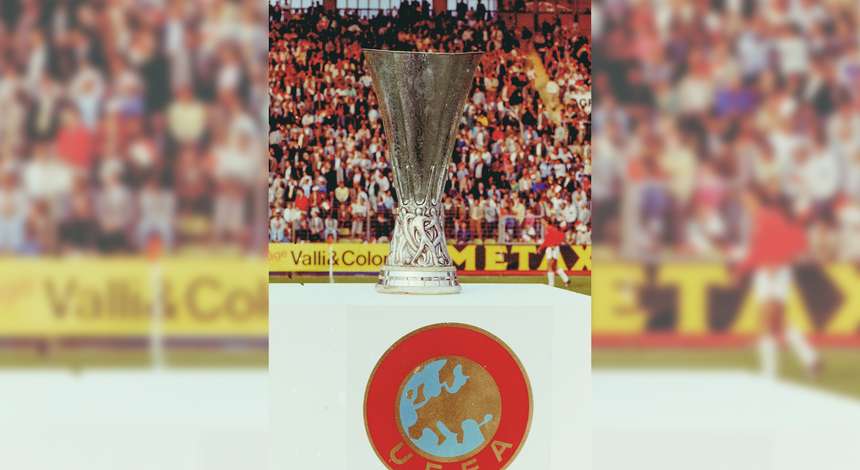
In a time where there were no mobile phones, I had my first cordless phone, my hair was permed, the players wore sexy short shorts and there were positions known as libero as we prepared for the new season. There were two points for a win in the Bundesliga and there was a maximum of two substitutes per game. I can't exactly remember the goalkeeper rules back then but I definitely wasn't allowed to pick up a back pass.
To explain 1988, we have to go back a year to the 1986 – 87 season. In that season Bayer were league leaders for the first time on matchday three and remained so for another two games, we beat the great FC Bayern Munich 3-0 on matchday 12 at their ground, went back to the top of the table and finally ended the first half of the season with an impressive third place just two points behind Bayern and league leaders HSV. Things don't go so well in the second half of the season. We lost more and more ground and dropped to sixth place. That was not good enough to qualify for the UEFA Cup. We were reliant on HSV beating second division Stuttgart Kickers in the cup final. Thankfully they did that on 88 minutes with a free kick from Manni Kaltz and then an own goal for the final scoreline of 3-1. So we again qualified for the UEFA Cup as in the year before
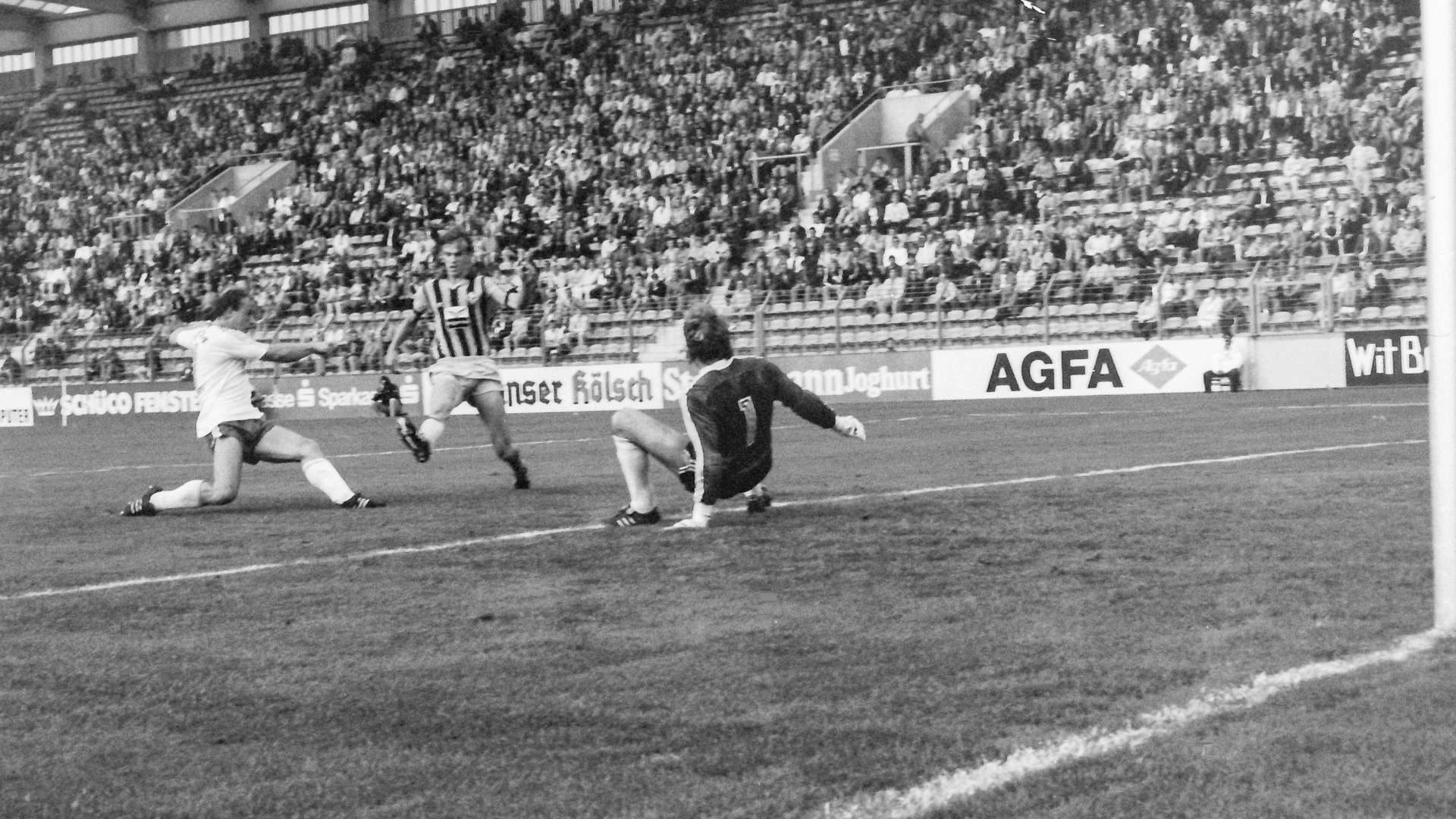

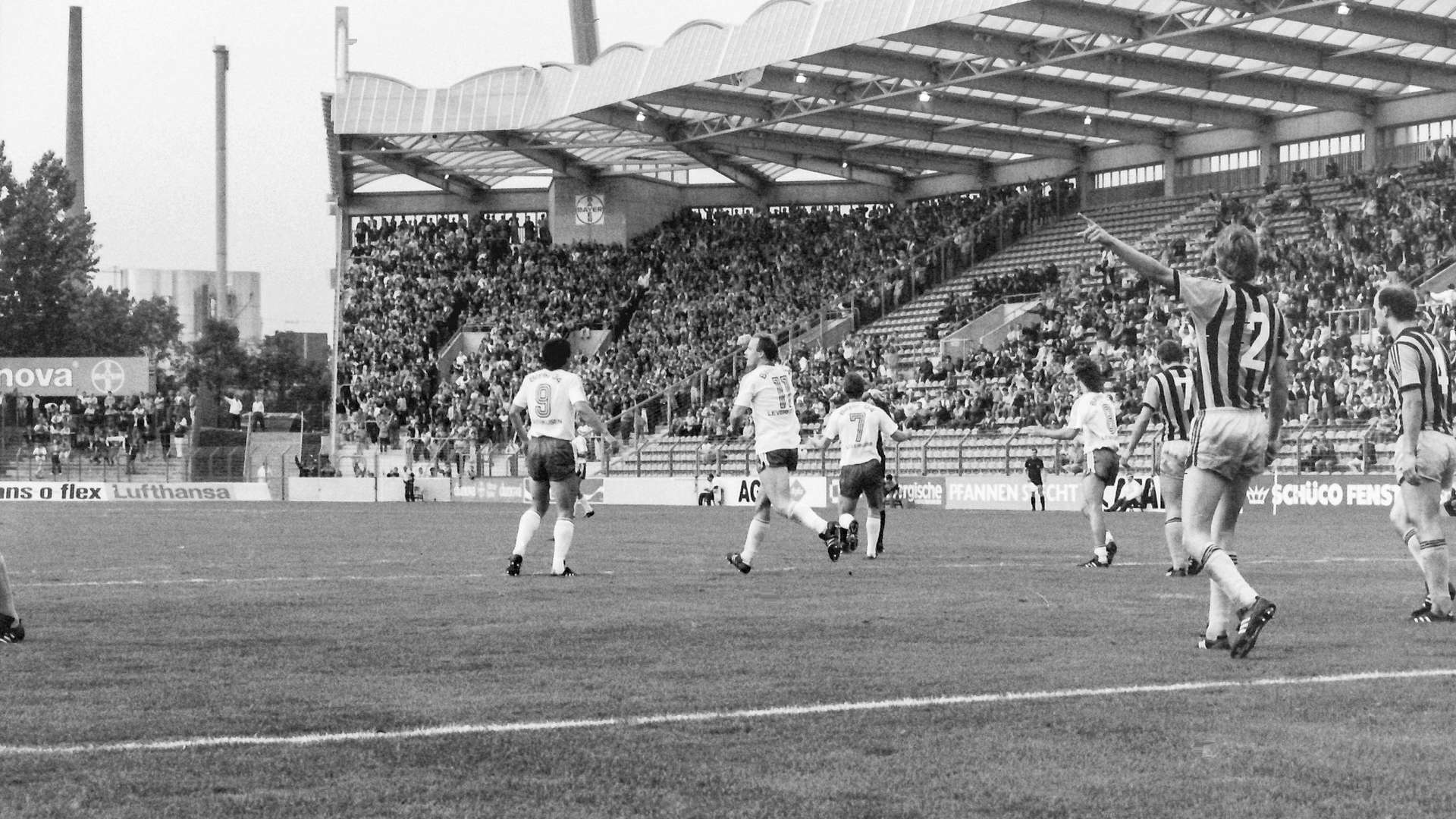
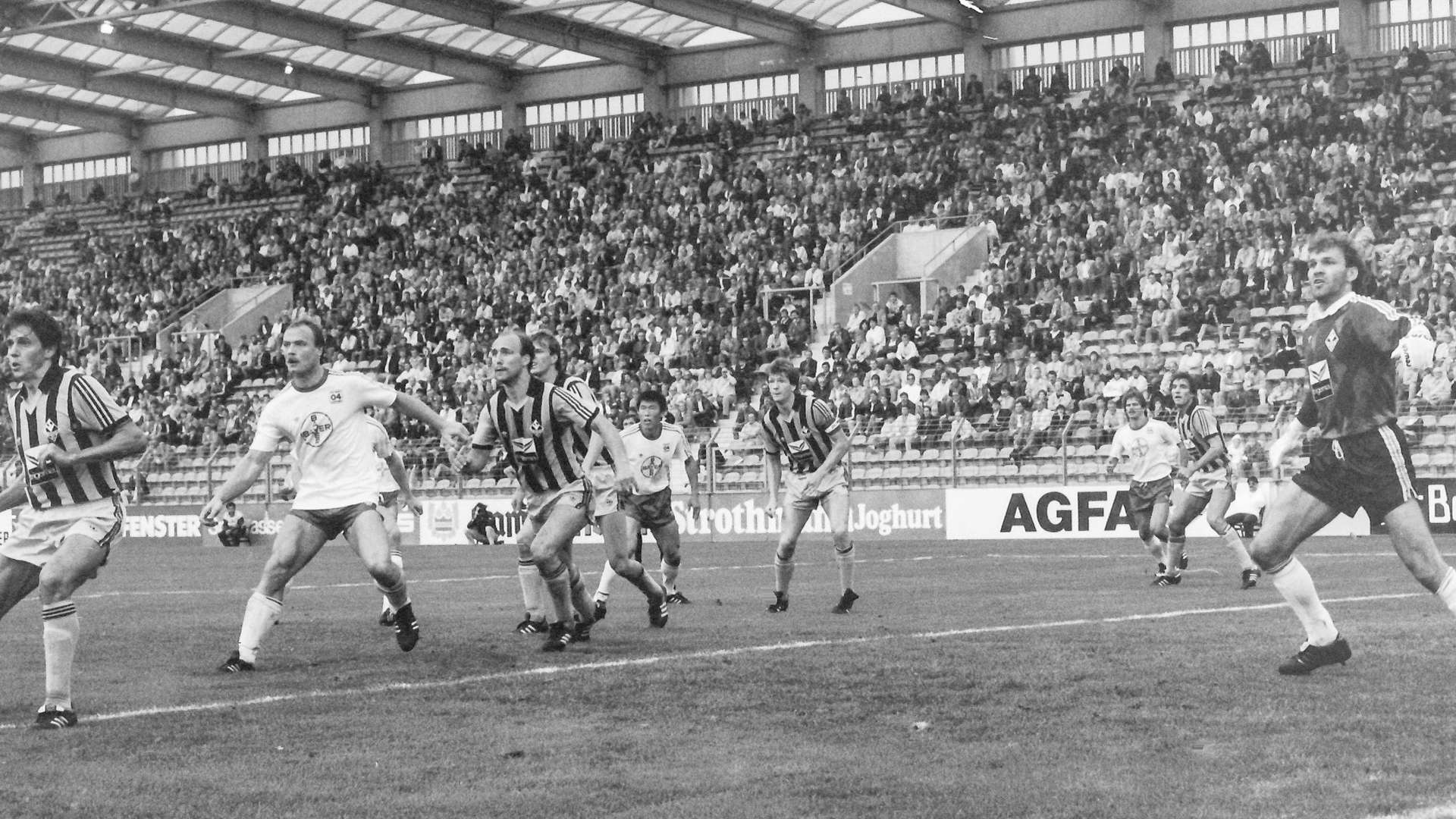
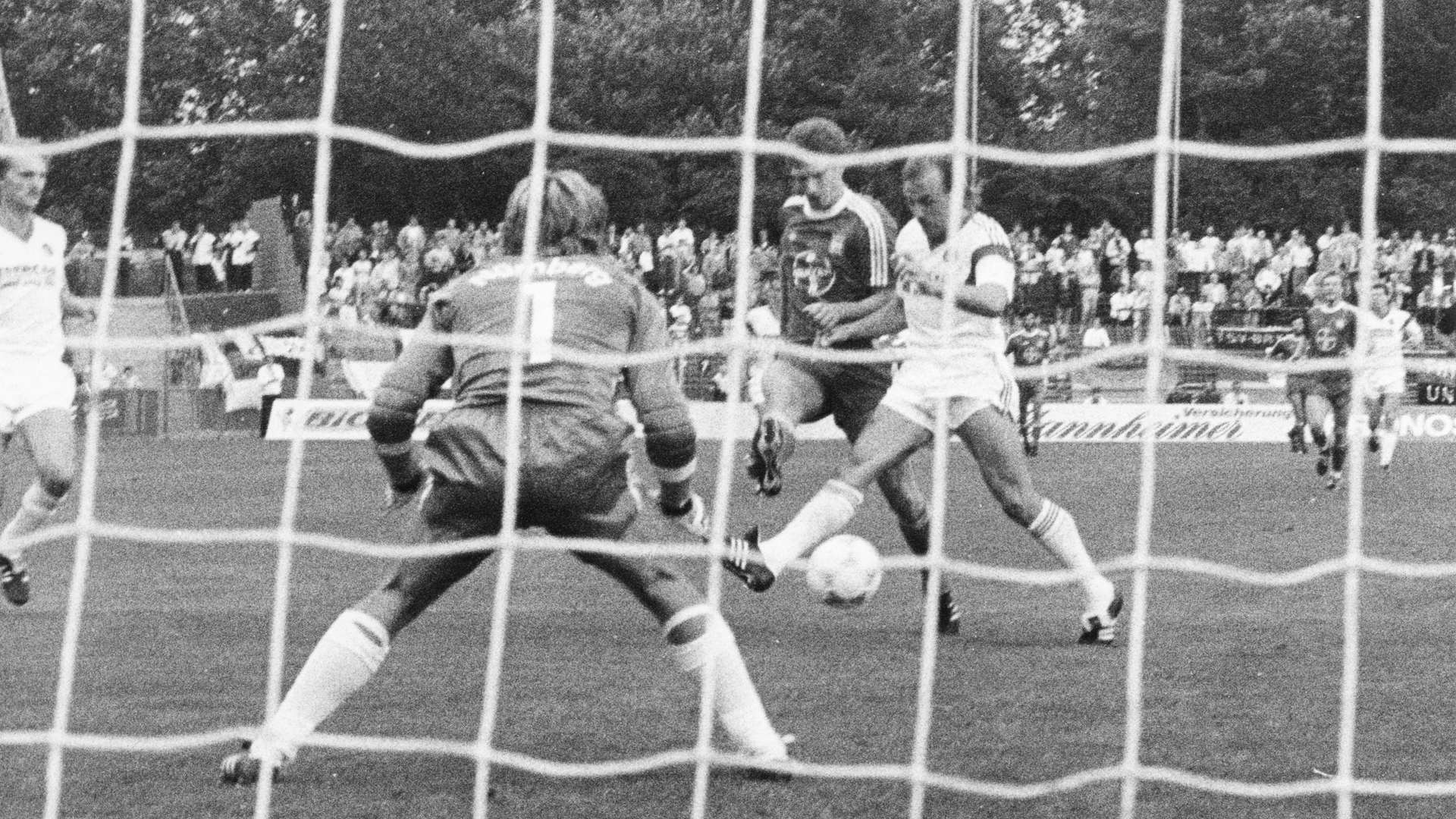
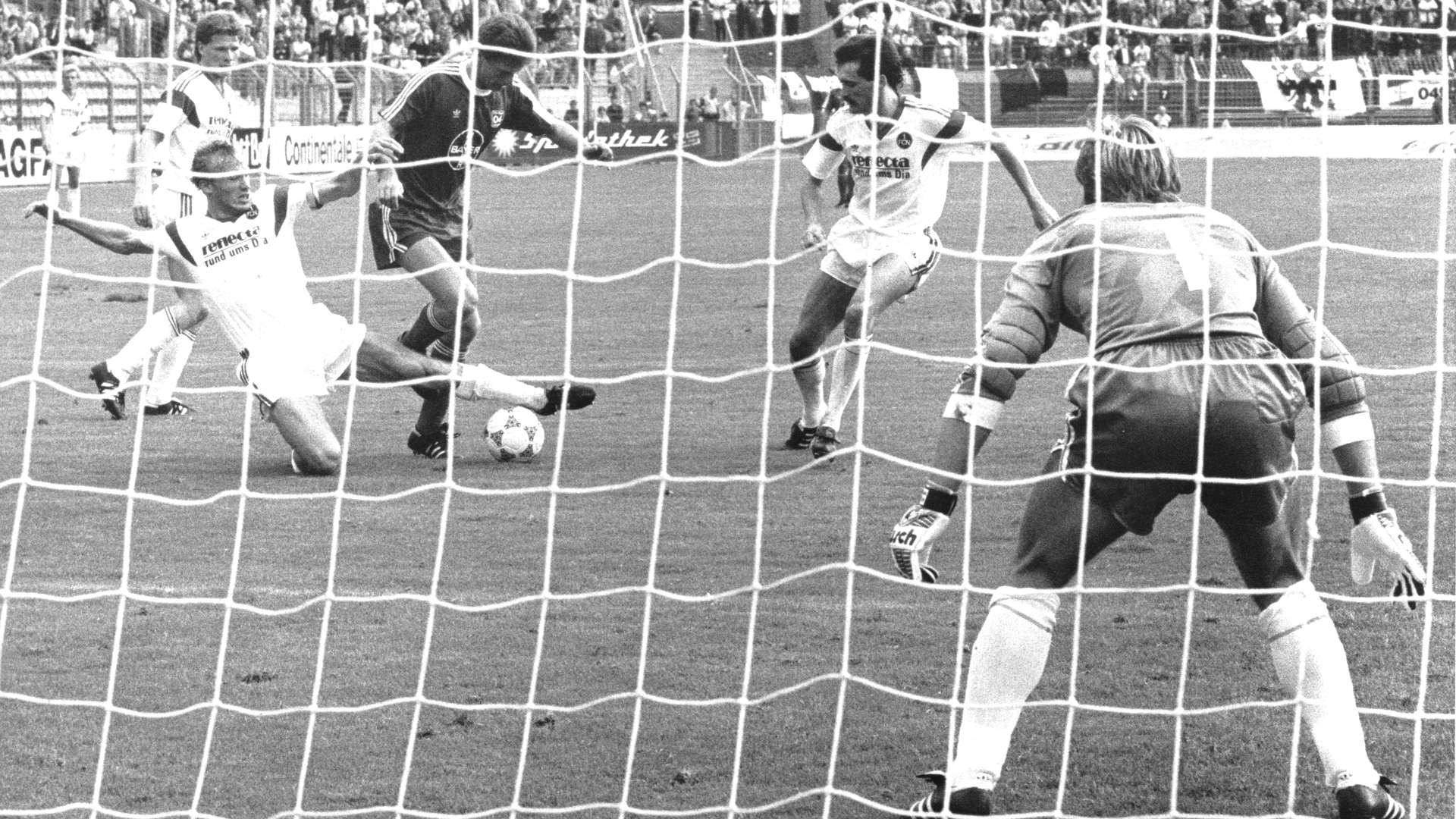
We had three new players for the 1987/88 season: Ralf Falkenmayer, Klaus Täuber and Andrzej Buncol. Knut Reinhardt and Jean-Pierre de Keyser from the second team were awarded professional contracts and Bernd Dreher moved up to the first team squad as an amateur.
In the season preview from Kicker we were predicted to finish in the top five. I quote: "The Bayer players will have to manage that: They finished sixth twice in succession. The fans would definitely not be happy with a hat-trick. Standing still is often the same dropping back. Expectations have definitely risen. Transfer spending in the sum of over three million for the players Täuber, Falkenmayer and Buncol has played its part in that." Three million Deutschmarks, not euros. I admit: The Bundesliga season was poor. Very poor. Somehow we never really get going. But the UEFA Cup matches were all the better for that. And that's what it was all about in the following months. Our first UEFA Cup match was on 15 September 1987 so will look at the two matches against Austria Vienna next month.
The first Bundesliga matches were in August. A 1-0 win in the opener at the Ulrich Haberland Stadium against Waldhof Mannheim was followed by two draws. Then comes the Mönchengladbach week where we lost 2-1 twice at the Bökelberg in the league and in the cup. In the week between the two Gladbach games there was also a 3-1 home defeat against Eintracht Frankfurt and the atmosphere under the Bayer Cross was really bad in August 1987.
Related News
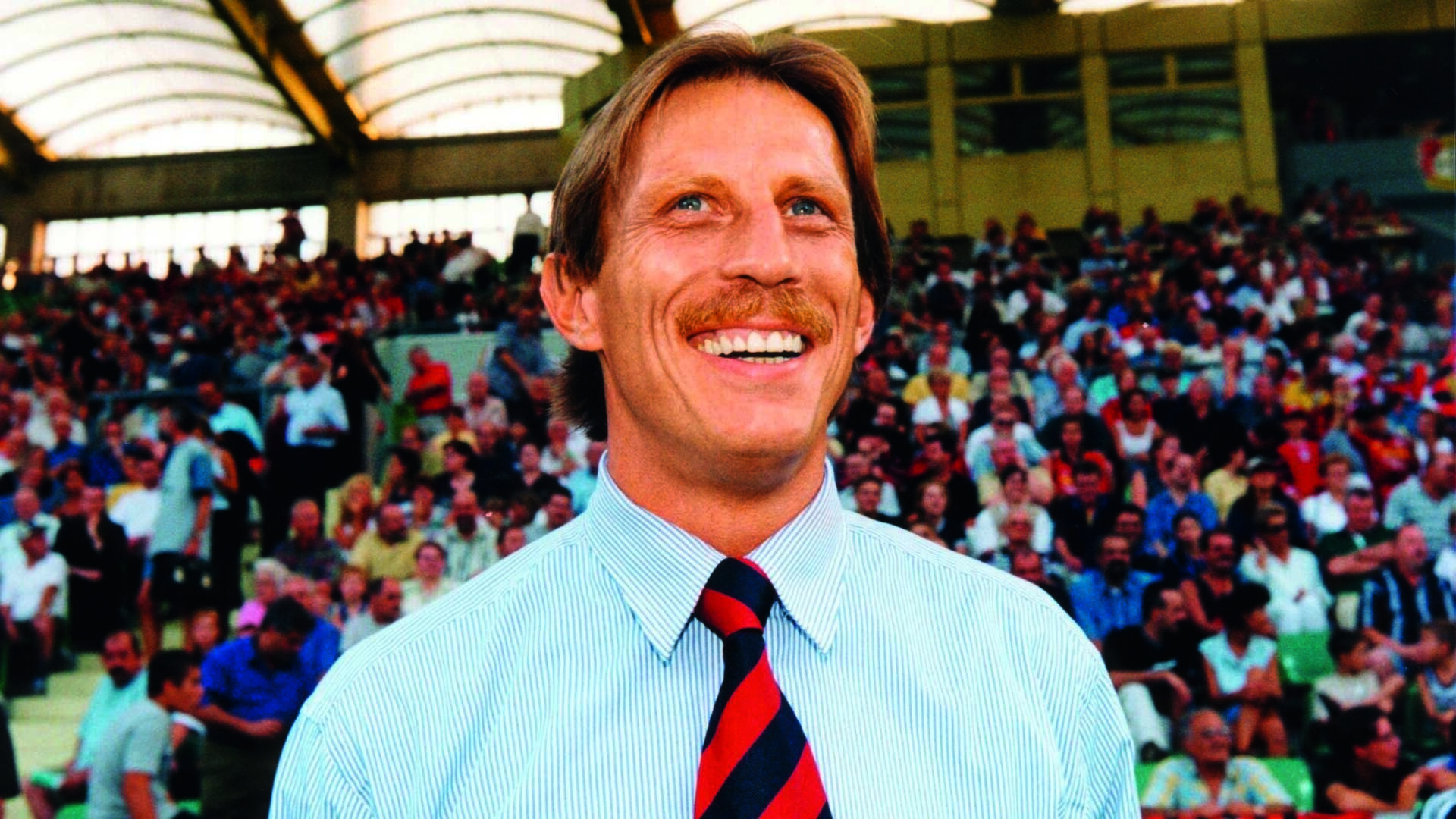
Legend: Christoph Daum - The man who taught us to want
Christoph Daum was born on 24 October 1953 in Zwickau. As a child, he moved to West Germany with his mother and grew up in Duisburg. He developed a great enthusiasm for football at an early age, even though it soon became clear that his future lay less on the pitch than on the sidelines. Even at a young age, his passion for analysing, explaining and improving things became apparent.
Show more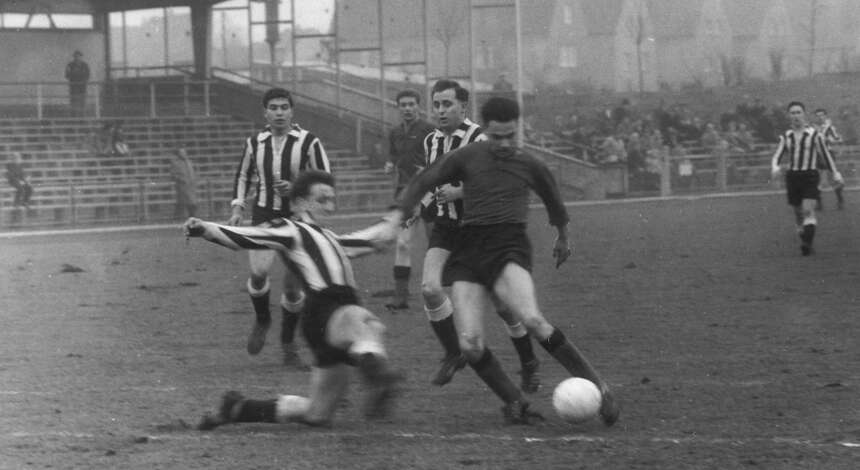
From the archives: 65 years ago - Another victory at last
When the Bayer 04 players celebrated Christmas in 1960, they spent the winter in second place in the Oberliga West 2 on 20 points - but already five points behind leaders Schwarz-Weiß Essen. However, coach Erich Garske's team are struggling to get back on track in the new year. A goalless draw against Bonner FV at home at the Ulrich Haberland Stadium was followed by a 2-1 away defeat in Erkenschwick. The following home game also yielded just one point. As a result, the team's promotion ambitions dwindled to a minimum, as the gap to the coveted spot has now grown to a challenging ten points.
Show more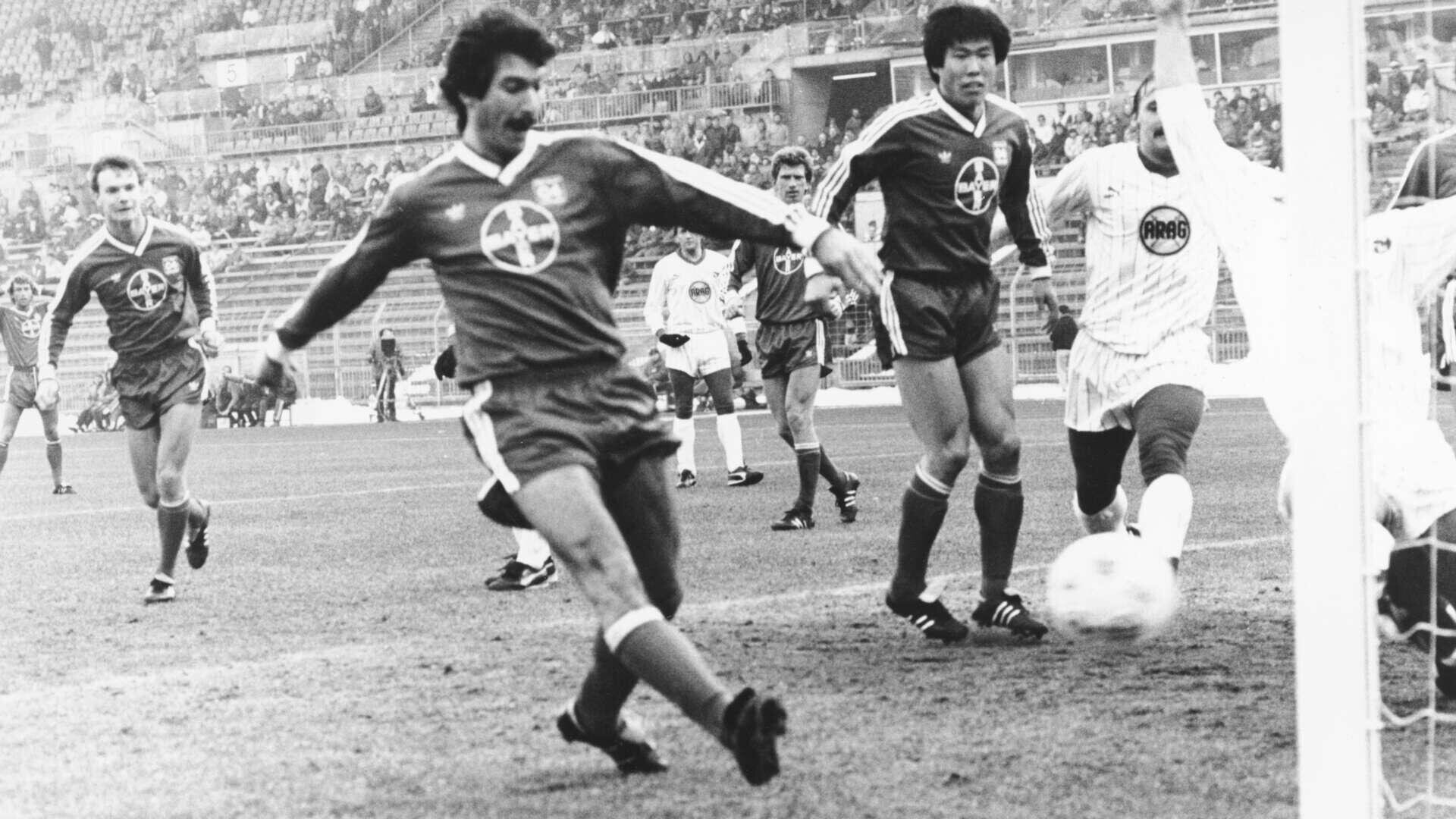
Goals of the month: From Waas to Tapsoba
In this video you can see impressive and important goals in Bayer 04 history from the month of February. It's not always about the beauty of the goals, but also a reminder of special games and players.
Show more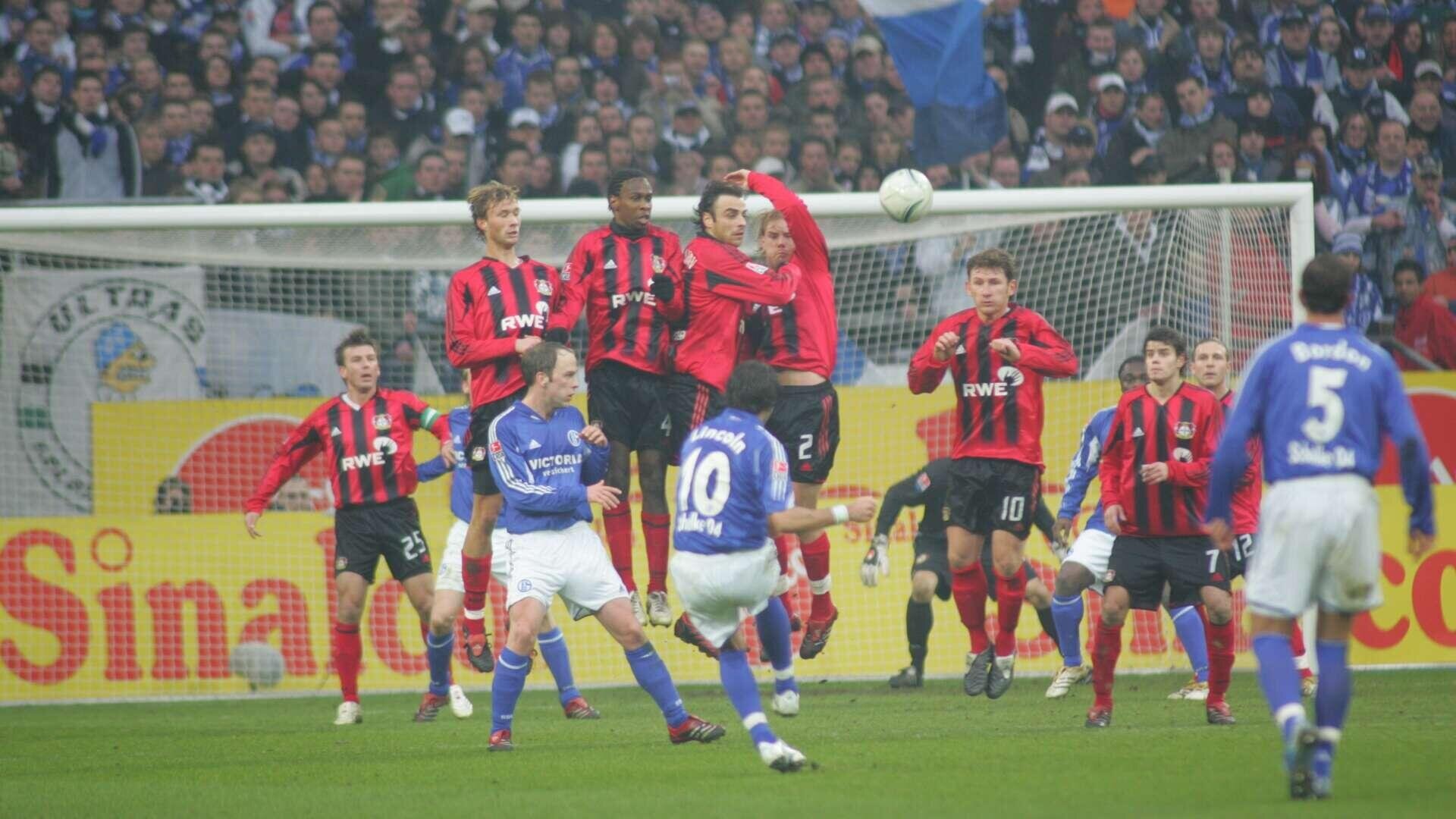
Match of the month: 20 years ago - A game of goals galore
It is 11 February 2006 and Schalke 04 and the Werkself kick off at 3.30 p.m. in a match that ends up being historic - at least from a Bayer 04 perspective.
Show more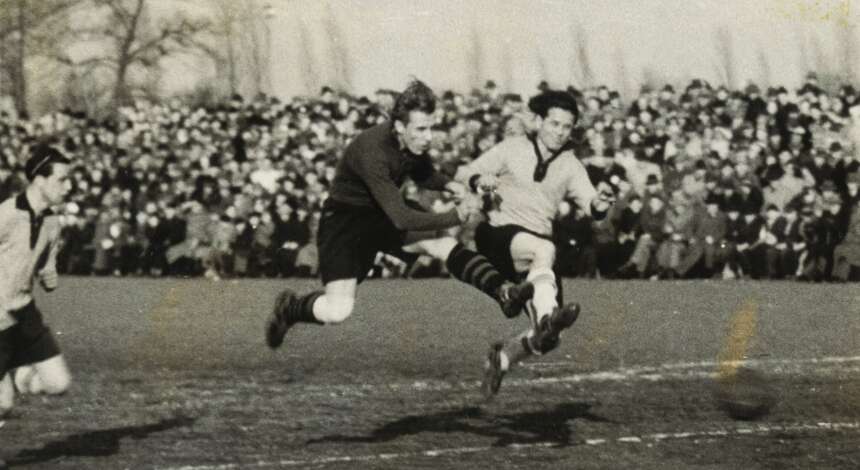
History: 75 years ago - The 1950/51 season (February)
As league leaders, the Werkself welcomed the relegation-threatened team from Rhenania Würselen. On 4 February 1951, 5,000 spectators line the touchlines despite the Sunday carnival parades. And they see a home team that is superior on the pitch. Without Theo Kirchberg, who was ill, and Emil Becks, who was suspended, the hosts attacked the opposing goal from the start. Battling against a strong wind in the first half, Bayer 04 created chance after chance, but were repeatedly thwarted by the Würselen goalkeeper. With the score at 0-0 at half-time, Karl Heinz Spikofski tried his luck on 55 minutes and hammered the ball into the opposition net from 20 metres out. Rhenania can no longer counterattack. The siege of the Würselen penalty area continued right to the end, but the game ended in a narrow 1-0 win.
Show more